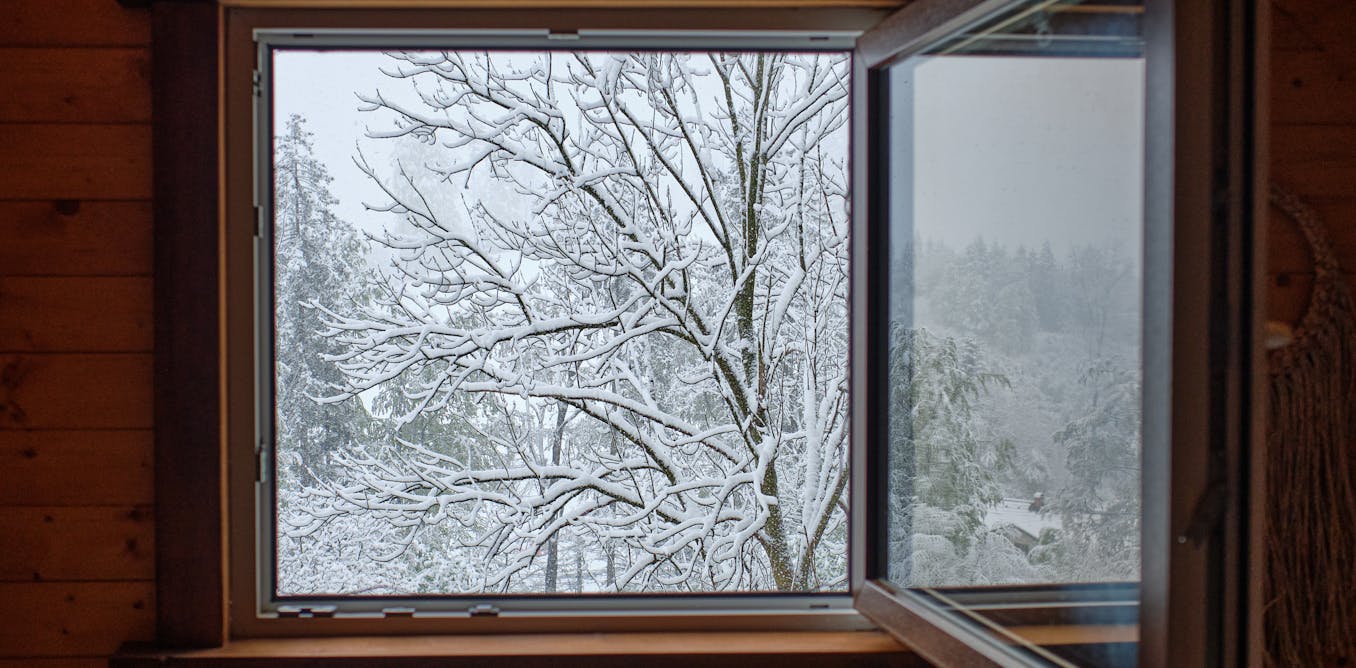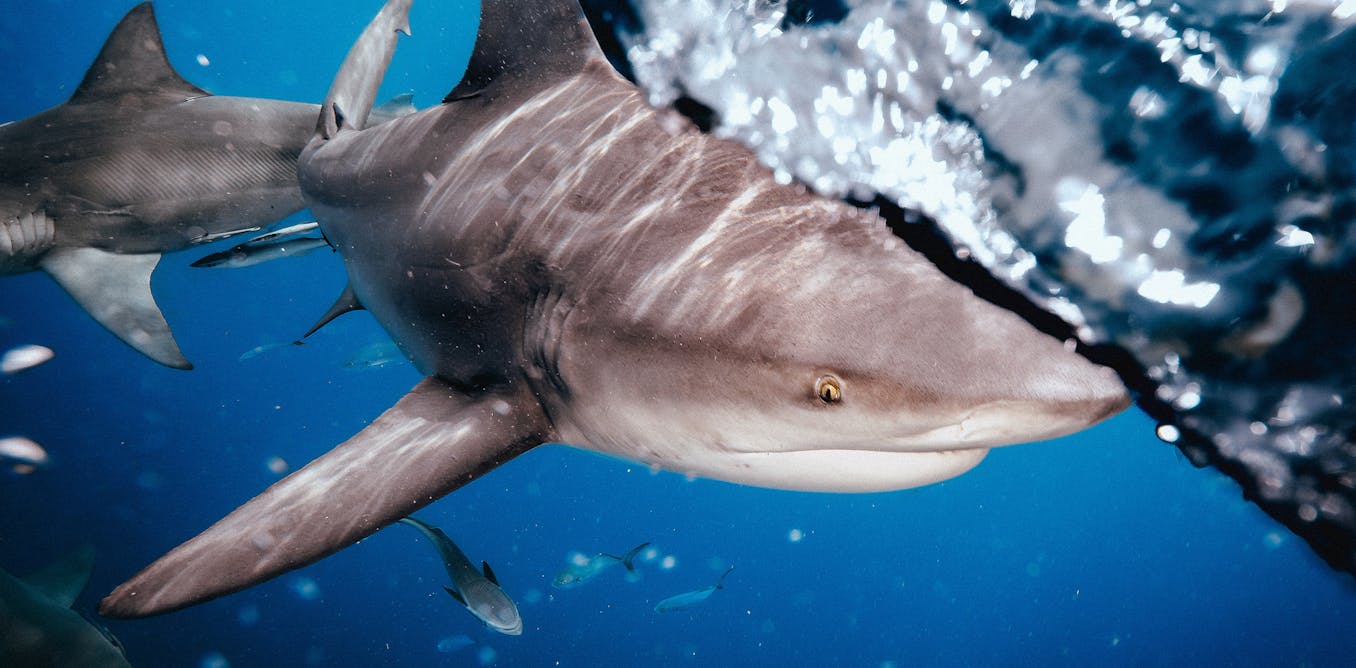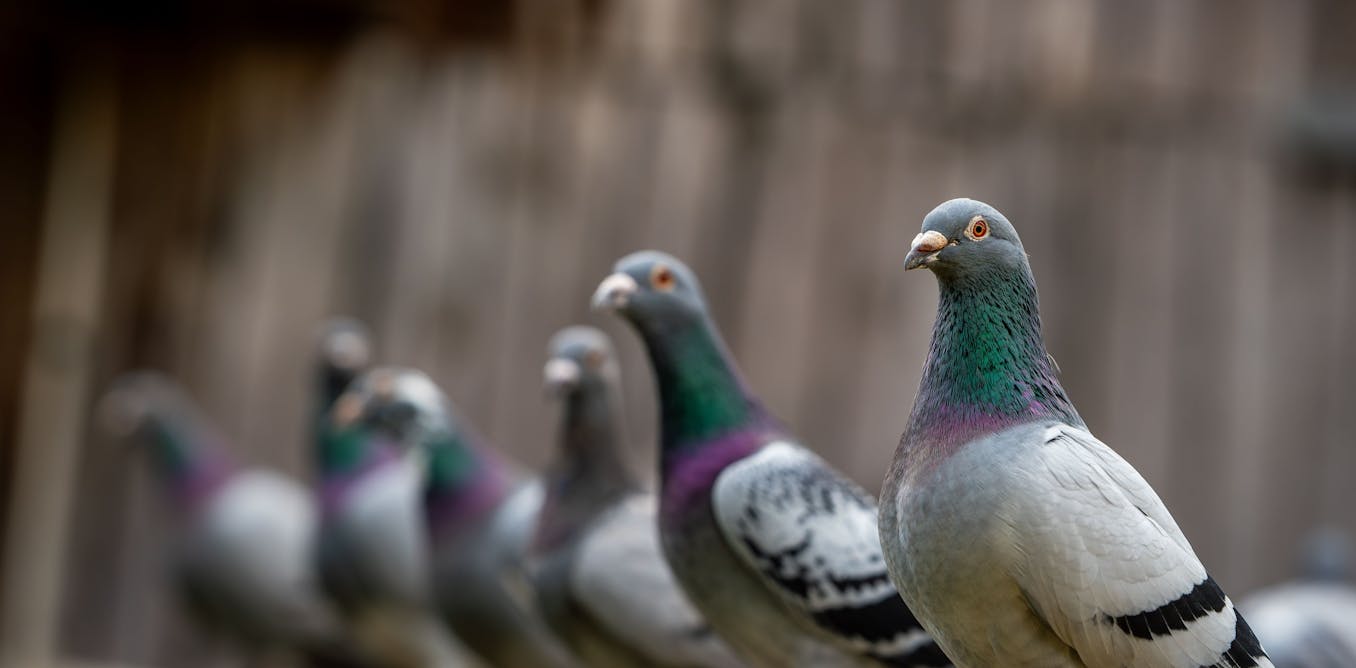In a 2022 interview with Publishers Weekly, Colin Meloy talked about discovering author Stephen King in the sixth grade — writing that inspired his own work as a novelist of such young adult books as the Wildwood and The Stars Did Wander Darkling. Not counting the 33 1/3 series book he wrote on The Replacements‘ Let It Be album in 2004, Meloy’s literary career began in earnest in 2011, by which time he’d already established himself as the Stephen King of indie rock.
As the frontman and principal songwriter of The Decemberists, Meloy is a prolific crafter of songs that are as lyrically rich as their music — contemporary issues expressed through ancient history and freighted with dark storylines and black humor. He doesn’t write about vampires and killer dogs or cars — wicked mortals and the luckless are his forté — but like King’s stories, Meloy’s songs connect and captivate with authentic humanity, even when something sinister is afoot. He makes bad behavior sound really good.
That certainly holds true for The Decemberists’ new double album, As It Ever Was, So It Will Be Again — the band’s first release in six years, as well as the first on their own label, YABB — which drops June 14. Meloy says it’s their best album, and he may be right. Certainly, it’s their best double album — a fat-free collection of songs that, like Fleetwood Mac’s Tusk, takes creative and sonic chances and yet flows as cohesive, immensely enjoyable and often profound song cycle.
The Portland, Ore. Band’s last album, 2018’s I’ll Be Your Girl was largely a provocative reaction to the 2016 presidential election, epitomized by the brilliant, searing single, ‘Severed.” But, as Meloy explains, singing those angry songs during the tour that followed left him exhausted.
As It Ever Was, So It Will Be Again is an irreverent musical revival of sorts — an attempt to muck out the political and cultural sludge we’ve slogged through for close to 10 years now — perhaps so that we are prepared for a second dose. The jaunty gallows humor of the album’s opener, “Burial Ground” sets the tone with Meloy singing, “This world’s all wrong, so let’s go where we belong. Pack up the stereo, meet at the burial ground.”
As it does on so many Decemberists’ albums, death looms, but on “The Reapers” and “The Black Maria” it’s inevitable, not personal. We are all doomed, Meloy seems to be saying, so why not really live while we can. “Long White Veil” puts the listener to that test. It’s a song about a woman who dies on her wedding night, with a pedal steel and guitar sound that dares you not to dance.
The album closes with a stone-cold masterpiece, “Joan in the Garden,” which was sparked by Meloy’s reading of The Book of Joan, Lidia Yuknavitch’s science-fiction riff on the story of Joan of Arc and his subsequent immersion in the history and lore of the martyr and early feminist. A prog-rock track with massive fuzzy guitars, bombastic drums, chimes and careening synths, “Joan in the Garden” clocks in at more than 19 minutes and includes an instrumental interlude that sounds like supernal electricity punctuated by muffled voices and the THX audio company’s sonic logo. (Could that also be a nod to OMD’s “Joan of Arc” at the song’s beginning?)
It’s a cathartic, carburetor-clearing banger that brings the album full circle. The last lines of the song’s last verse serve as the album’s title, and a mantra that, in light of these times, could be inspirational or delusional: “As it ever was, so it will be again.”
The title of the album reminds me of that Karl Marx quote, “History repeats itself. First is tragedy, second is farce.”These days we seem to be living through a combination of the two. Any thoughts on that?
Is that Karl Marx or Groucho Marx? I’m familiar with that quote. I didn’t know that was Karl Marx. That was not on my mind. “As it ever was, so it will be again” is the last line of “Joan in the Garden,” which is a triumphal moment, but I also think it’s about returning and about permanence or how we perceive permanence. I think there’s a lot of things to unpack at that.
I interpreted the cover art as a return in the way that nature returned during the pandemic.
There is something about that. I think there is a return to nature, to simplicity — to a kind of idyllic world that exists in our imagination. And it’s a little skewed. To go back isn’t always the best way forward.
“Joan in the Garden” is an epic song. Have you ever seen Dreyer’s The Passion of Joan of Arc?
I have.
That song would make a great soundtrack to the movie.
“Joan in the Garden” came out of a weird period in my life. Starting in 2017, I became super fascinated with the story of Joan of Arc after reading Lidia Yuknavitch’s The Book of Joan, which recasts her story in this weird, bizarre, future world. After I read that I was like, “What is the real story of Joan of Arc?” So, I went back and read another novel. I read a biography, and I certainly watched that film. It’s absolutely beautiful — all those close-ups of her [actress Renée Jeanne Falconetti].
A movie director once told me that the burning-at-the-stake scenes got a little too realistic.
I read that, too. I think some of that was real emotion. Real tears that were brought out in her. Real fear.
What are some of your favorite prog-rock songs?
I wouldn’t call myself a real prog aficionado. I’m not sure I even like most prog, but I like “I Never Glid Before” by Gong. I suppose that’s a pretty traditional prog song. I mostly like songs that take big swings, that are ambitious. Like, you wouldn’t necessarily call “Echoes” by Pink Floyd a prog song, but I dig that quite a bit.
Is there anything you’ve read or watched recently that resonated with you?
Prophet Song by Paul Lynch. It won the Booker Prize. That book is phenomenal. I also read The Bee Sting by another Irish writer named Paul Murray that I really loved. Stuff I’m watching — I really love Ripley, the Netflix adaptation of The Talented Mr. Ripley with Andrew Scott. And then we just watched the season finale of Shogun. I thought they did such a good job with that series.
The songs on As It Ever Was are not the first laced with dark happenings and black humor. But I feel like the album alludes to death and mortality more than on past records. Do you agree?
Maybe. I’d have to look. I think with every Decemberists record, somebody makes a crack about how many people die in a Decemberists record. I don’t know that the death count in this one is that high. I leave that up to our capable fans. I think there’s a lot of meditations about death and dying and mortality — maybe more than there are actual deaths.
Where do these meditations come from?
Oh gosh, I guess it’s not often far from my mind. It’s a universal thing. It’s something that we all share — birth and death. I feel like I’m drawn back to it time and time again.
I’m guessing you had finished the album by the time the wars in Ukraine and on the Gaza strip and Donald Trump’s numerous trials began. Did the political climate in America factor into your songwriting at all?
Our last record was shot through with resentment and reaction to the 2016 election and living under a Trump presidency, and I came out the other end of touring behind that record so exhausted from all the vitriol that I was spewing [in those songs]. So, while we’re clearly not out from underneath Trumpism, I need to move on from that and being angry about that. But it does show up. The song “America Made Me” is a reflection on my experience with Americanism in 2024, and the brand we have on us as Americans. But beyond that, I don’t know. I mean certainly you could read “Joan in the Garden” as an anti-authoritarian song. But beyond that I’m not sure that I spent much time dwelling on politics.
I’ve read that the song “William Fitzwilliam’ has a connection to John Prine?
It’s sort of me writing a John Prine song. Right when the lockdown happened, I was reading Hilary Mantel’s book The Mirror and the Light, which is the third in her Wolf Hall series about the Court of Henry VIII. At the same time, I was reading about all the stuff that was happening in lockdown and John Prine died. I went back and listened to these John Prine records and even learned a John Prine song for this streaming tribute thing. I had Hilary Mantel and John Prine on the brain, and they just collided into this song “William Fitzwilliam.”
The press release for the album says you consider As It Ever Was, So It Will Be Again The Decemberists’ best album. Can you give me a sense of why you feel that way?
In so many ways, it’s a culmination of everything that we’ve tried to do from the beginning of our career. I think it hits every note. Probably some of that is my own bias of it being fresh new music. I did have a moment in the studios where listening through, I thought, “This the best thing that we’ve done.” I think the structure is there from song one to song 13. Other people can argue with that. I’m probably the worst expert to give you that kind of summation, so why not just shoot my mouth off about it.
I find it interesting there have been such a proliferation of double albums recently: Taylor Swift, Travis Scott, Morgan Wallen and now The Decemberists. Is it that people were so cooped up during the pandemic that they have a lot they need to express?
That’s part of it. Also, we’ve never really done a proper 70-minute double record, and I feel like this is our time to do it. I had regrets that What a Terrible World, What a Beautiful World wasn’t a double record. Weirdly, we kind of split the difference with that record. It should have been a very short record or a very long record. In my head, it exists as a double record.
There’s always the anniversary edition.
As far as double records out in the world today, I do think there’s lots of people putting lots of music out. It’s easier to record and there’s less constraints, but I grew up loving certain double records and the big swings they make. I think of Fleetwood Mac’s Tusk and Zen Arcade by Husker Du. Some of the classic double records.
You talk about the exhaustion that resulted from the Your Girl/Your Ghost World Tour. Did you ever consider walking away from the music business?
I feel that way between every record. At every stage in my career, I’ve had this longing to just chuck it all in. I think that’s my own weird hangup. I’m a private person. I’m a reserved person. I tussle so much with how I’m perceived and receiving criticism and constantly putting myself out there in this way and being drawn to that over time it’s just so challenging. I continue like a moth to a flame. I come back. I can only hope that each time that flame burns a little brighter and it gets a little hotter. At least maybe I’m making better work for all that anguish.
This is your first album on your own label. Why start one now?
We were done with Capitol, and the major label world has changed so much. We were always outliers as a major label band. The people call us a quintessential indie rock band and I would be like, “But we’re not, actually.” I feel like we managed to make it work at Capitol, and for whatever reason they kept us around even though they were more and more geared towards making pop records. By no means is there bad blood or anything. Working with Capitol was surprisingly great. But at this point in our career, we don’t need a major label behind us anymore. We have our fan base, and there are more and more channels available to independent artists making their own work. It has changed so much since we signed to Capitol in, whatever, 2005, that it didn’t make sense to go back to a major label. It felt like if ever there was a time to take this under our own control, it was now.
Do you own your masters prior to this album?
No. Those are all Capitol’s or Kill Rock Stars’. In time we will own masters, but the deal with the devil that you make is that you give up your masters.
I find it interesting that you write young adult fiction and songs that, from my perspective, are created for people with much more life experience, and a healthy sense of mortality. How do these two creative engines coexist?
I don’t think they’re too far off from one another. The stuff that I write or at least the stuff that I am drawn to as far as books for kids is darker, and I think so much of children’s literature up until kind of recently was always a little dark. Folk tales and fairytales are as much about warning kids about the darkness and evil in the world and death as they are about imparting any kind of moral lesson. And so, I feel like that’s the mode that I worked in in the books, and then similarly I feel like that’s also part of what I write in the songs, too.
Your novel Wildwood is going to be a film and you’re writing the soundtrack?
I’m contributing songs to it. There’s a composer writing the soundtrack, the cinematic music for it. But I have been asked to contribute a couple of songs and then maybe one for the end credits. Who knows. With these things, you never know what’s going to survive.
Will you perform the songs solo or with The Decemberists?
We might be doing a song for the end credits. But the songs that I wrote will be sung by the actors; the characters in the movie. There’s just a couple of them.
You are also working on a musical theater project. Are you able to talk about it?
I can’t really talk about it in detail. Right now, it’s still in a gestational phase. But I feel like it’s something that I’ve been devoting a whole lot of songwriting time to over the last three years and, in some ways, I think really helped and informed the songs that I was writing for the band.

The post “Why The Decemberists Always Felt Like ‘Outliers As a Major Label Band’” by Frank DiGiacomo was published on 06/13/2024 by www.billboard.com





































![ENHYPEN’s ‘[WALK THE LINE SUMMER EDITION] IN CINEMAS’ Concert Film Sets March Release Date ENHYPEN’s ‘[WALK THE LINE SUMMER EDITION] IN CINEMAS’ Concert Film Sets March Release Date](https://www.billboard.com/wp-content/uploads/2026/01/P101CEOX-e1769531503759.jpg?w=1024)